The dental health of our beloved Fresno Chihuahuas is of utmost importance in ensuring their overall well-being and happiness. Regular dental health assessments are crucial in maintaining their pearly whites and preventing dental issues that can affect their quality of life. These assessments involve thorough examinations by our experienced veterinarians, checking for signs of dental diseases such as cavities, gum disease, and plaque buildup. By staying proactive and vigilant in monitoring their dental health, we can ensure that our furry companions continue to flash those adorable grins for years to come. Join us in prioritizing the dental health of our Fresno Chihuahuas!
Understanding the Importance of Dental Health in Chihuahuas
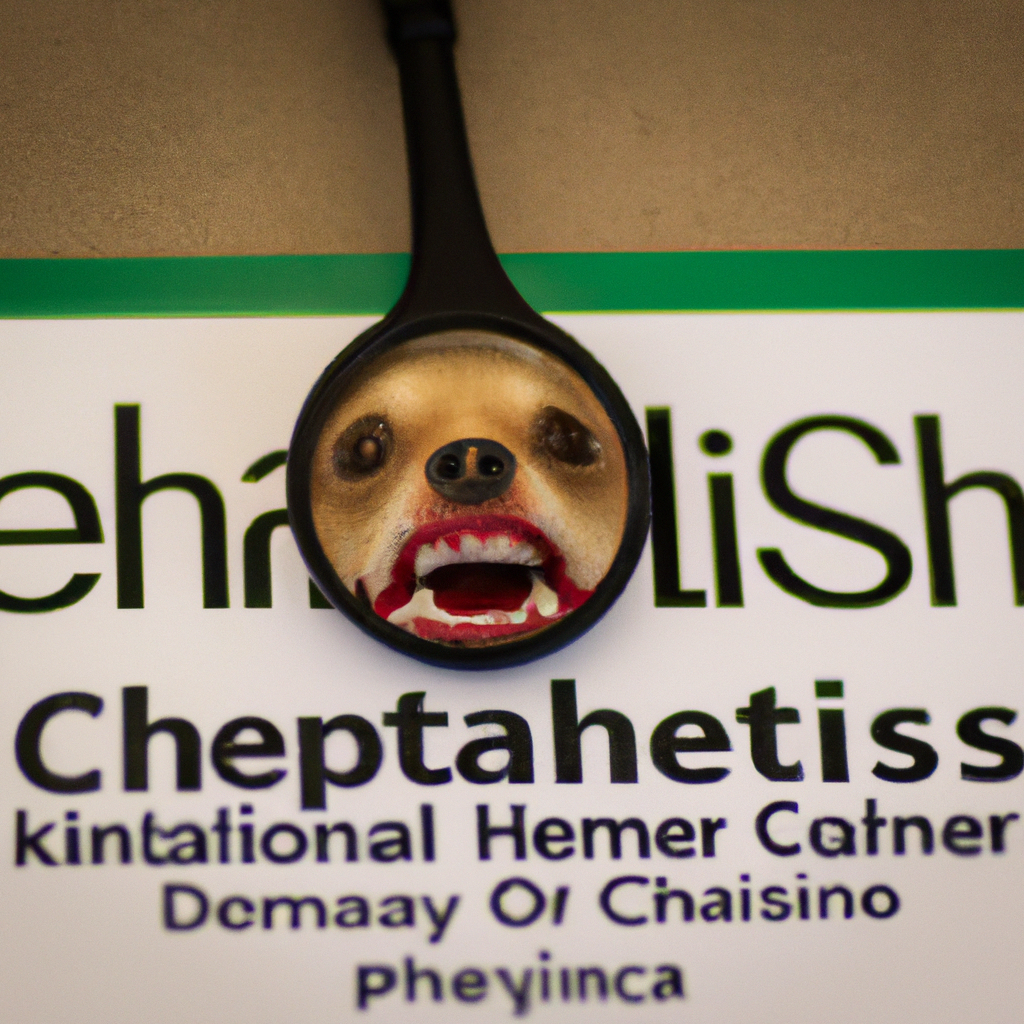
Maintaining proper dental health in Chihuahuas is crucial as it significantly impacts their overall well-being. This is not merely a cosmetic concern but a fundamental aspect of their health that can affect their quality of life in various ways. Several key points underline the significance of dental health in Chihuahuas:
-
Dental health as a key aspect of overall well-being: The dental hygiene of a Chihuahua is not just about having a pretty smile; it is essential for their overall health. Poor dental health can lead to various systemic issues, affecting not only their mouth but also their organs and overall vitality.
-
Common dental issues in Chihuahuas: Chihuahuas are prone to dental problems such as plaque buildup, tartar accumulation, gum disease, and tooth decay. These issues can cause pain, discomfort, and potentially more severe health complications if left untreated.
-
Impact of poor dental health on the dog’s quality of life: Neglecting dental care in Chihuahuas can result in pain while eating, bad breath, difficulty in chewing, and even tooth loss. Moreover, untreated dental problems can lead to infections that may spread to other parts of the body, affecting the Chihuahua’s energy levels, appetite, and overall happiness.
Therefore, understanding the importance of dental health in Chihuahuas is not just about aesthetics but about ensuring their well-being and enhancing their quality of life. Regular dental assessments and proper oral hygiene practices are essential to prevent and address potential issues effectively.
Signs and Symptoms of Dental Problems in Fresno Chihuahuas
Recognizing Dental Issues Early
Recognizing dental problems in Fresno Chihuahuas early on is crucial for maintaining their overall health and well-being. By being vigilant and observant, pet owners can identify signs and symptoms that may indicate underlying dental issues. Here are some key indicators to watch out for:
-
Bad breath: Persistent foul breath can be a sign of dental problems such as tartar buildup or gum disease.
-
Excessive drooling: If your Chihuahua is drooling more than usual, it could signal oral discomfort or an infection.
-
Discolored teeth: Yellowing or browning of the teeth may indicate plaque accumulation or dental decay.
-
Difficulty eating or chewing: Any reluctance or difficulty in eating, especially hard food or treats, could be a sign of dental pain or discomfort.
-
Pawing at the mouth: If your Chihuahua is frequently pawing at their mouth or showing sensitivity when you touch their face, it could suggest oral pain or irritation.
Behavioral Changes Linked to Dental Problems
- Aggression
- Fresno Chihuahuas may exhibit increased aggression or irritability due to dental pain and discomfort. This change in behavior can be a sign of underlying dental issues that need to be addressed promptly.
- Avoiding favorite chew toys
- If a Fresno Chihuahua suddenly avoids or shows disinterest in their favorite chew toys, it could indicate dental problems such as tooth decay, gum disease, or oral infections. Changes in chewing habits may be a result of pain experienced while biting or chewing.
- Irritability or restlessness
- Dental problems can cause Fresno Chihuahuas to feel irritable or restless. They may exhibit signs of discomfort by pacing, whining, or exhibiting other restless behaviors. It is essential to observe any sudden changes in their behavior to identify potential dental issues.
- Reluctance to be touched around the mouth
- Fresno Chihuahuas with dental problems may show reluctance or aversion to being touched around the mouth area. This can be due to the sensitivity or pain they experience when their mouth is touched. Monitoring their reaction to mouth inspections or attempts to examine their teeth can provide valuable insights into their dental health status.
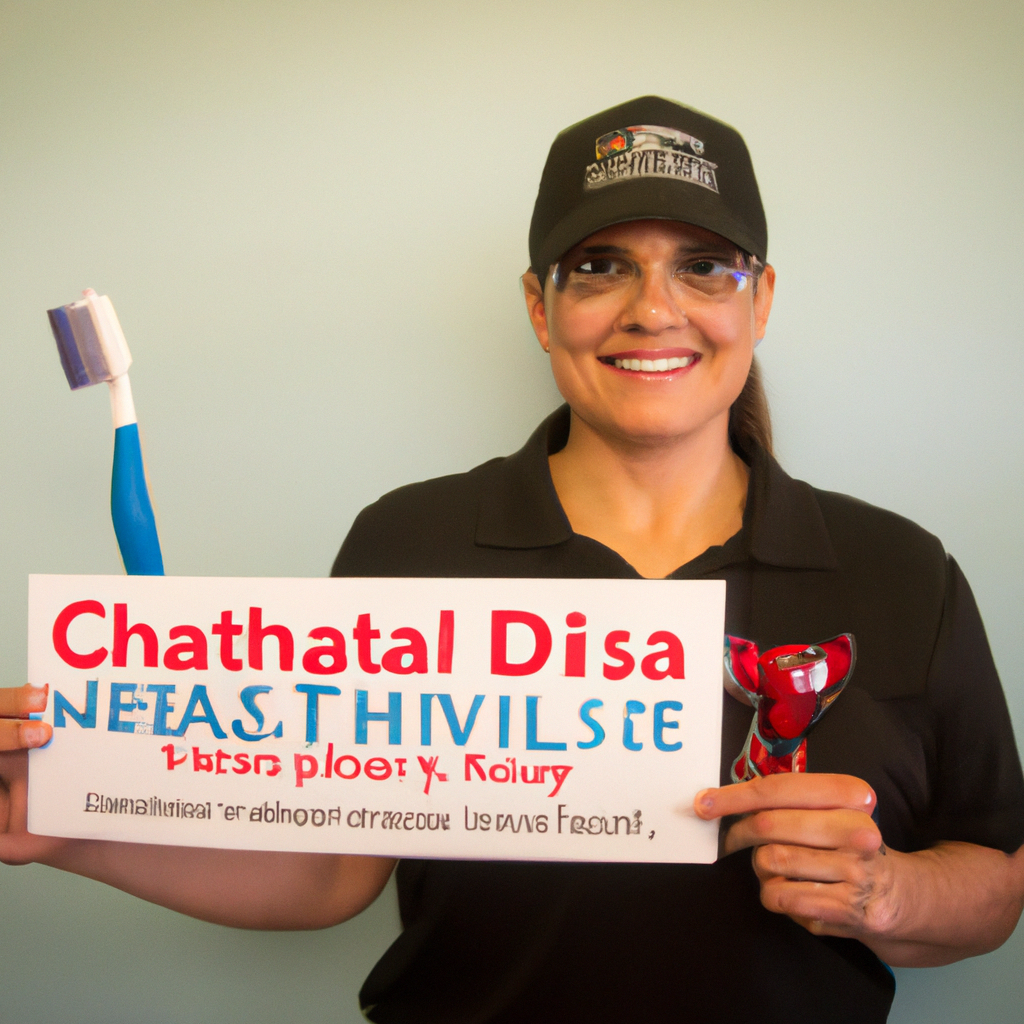
Conducting a Dental Health Assessment for Your Fresno Chihuahua
Steps to Assess Dental Health
- Visual inspection of the teeth and gums
- Begin by gently lifting your Fresno Chihuahua’s lips to expose the teeth and gums.
- Look for any discoloration, chipping, or missing teeth that may indicate dental issues.
- Check the color of the gums – healthy gums should be pink, not red or white.
-
Note any swelling, lumps, or bumps that could be signs of underlying problems.
-
Checking for tartar buildup
- Use your fingers or a dental tool to feel along the teeth for rough or sticky spots, which may indicate tartar.
- Tartar appears as a yellow or brownish buildup on the teeth, particularly near the gumline.
-
Excessive tartar can lead to gum disease and other oral health issues if left untreated.
-
Examining for signs of gum disease
- Look for red, swollen, or bleeding gums, which are common symptoms of gum disease.
- Bad breath, also known as halitosis, can be a sign of advanced gum disease in Fresno Chihuahuas.
-
Untreated gum disease can lead to tooth loss and systemic health problems if bacteria enter the bloodstream.
-
Assessing the condition of the dog’s breath
- Pay attention to your Chihuahua’s breath during the assessment.
- Foul-smelling breath, often described as “fishy” or “rotten,” can indicate dental issues or underlying health problems.
-
Chronic bad breath should prompt further evaluation by a veterinarian to address potential dental concerns.
-
Evaluating the alignment of the teeth
- Check that your Fresno Chihuahua’s teeth meet properly when the mouth is closed.
- Misaligned teeth, overbite, underbite, or crowded teeth can cause dental problems and discomfort.
- Orthodontic issues may require intervention from a veterinary dental specialist to prevent complications.
Tools Needed for a Comprehensive Dental Check
-
Dog-friendly toothbrush and toothpaste: When performing a dental health assessment on your Fresno Chihuahua, it is crucial to use specialized dog-friendly toothbrushes and toothpaste. Human toothpaste can be harmful to dogs, so opt for products specifically designed for canine dental care.
-
Dental inspection mirror: A dental inspection mirror is an essential tool for examining your Chihuahua’s teeth and gums effectively. It allows you to get a closer look at hard-to-reach areas in your dog’s mouth, enabling you to identify any potential issues such as plaque buildup or gum inflammation.
-
Dental scaler for tartar removal: Tartar buildup can lead to dental problems in Chihuahuas, making a dental scaler a valuable tool for removing stubborn deposits from your dog’s teeth. Regular scaling can help prevent periodontal disease and maintain your pet’s oral health.
-
Gauze pads for cleaning: Gauze pads are handy for gently cleaning your Chihuahua’s teeth and gums during a dental assessment. They can be used to wipe away debris, excess toothpaste, or blood after scaling, ensuring a thorough and hygienic examination of your dog’s mouth.
-
Treats for positive reinforcement: Using treats as positive reinforcement during a dental health assessment can make the experience more enjoyable for your Fresno Chihuahua. Rewarding your pet with treats for good behavior can help create a positive association with dental care, making future assessments easier and stress-free.
Establishing a Dental Care Routine for Fresno Chihuahuas
Daily Dental Care Practices
Establishing a Dental Care Routine for Fresno Chihuahuas
- Brushing the dog’s teeth regularly
- Brushing your Fresno Chihuahua’s teeth daily is crucial to prevent plaque and tartar buildup, which can lead to dental issues.
- Use a soft-bristled toothbrush and dog-friendly toothpaste to gently clean your pet’s teeth and gums.
-
Make the experience positive by rewarding your Chihuahua with treats or praise after each brushing session.
-
Providing dental chews or toys for chewing
- Offering dental chews or toys designed to promote dental health can help keep your Chihuahua’s teeth clean.
- Look for products approved by veterinarians that can aid in reducing plaque and tartar while satisfying your dog’s natural urge to chew.
-
Supervise your Chihuahua while they enjoy these dental chews to prevent any choking hazards or ingestion of large pieces.
-
Using dental wipes for quick clean-ups
- Dental wipes are convenient for quick clean-ups in between brushings or as an alternative for dogs who are not comfortable with toothbrushes.
- Gently wipe your Chihuahua’s teeth and gums with the dental wipes to remove food particles and bacteria that can contribute to dental problems.
- Choose wipes specifically formulated for dogs and avoid using human dental products that may be harmful if ingested by your pet.
Regular Professional Dental Examinations
blishing a Dental Care Routine for Fresno Chihuahuas
Regular professional dental examinations are crucial for maintaining the oral health of Fresno Chihuahuas. These assessments should be scheduled with a veterinarian who specializes in dental care for pets. Here are some key points to consider:
-
Scheduling routine dental check-ups with a veterinarian: It is recommended to have dental check-ups at least once a year, but more frequent visits may be necessary for Chihuahuas with pre-existing dental issues or those prone to dental problems. During these examinations, the vet will assess the overall oral health of the Chihuahua, check for signs of periodontal disease, cavities, or other dental issues.
-
Professional dental cleanings under anesthesia, if necessary: In some cases, professional dental cleanings may be required to remove plaque and tartar buildup that regular brushing cannot address. These cleanings are typically done under anesthesia to ensure thorough cleaning and minimize stress for the Chihuahua. The vet will evaluate the need for a cleaning based on the condition of the dog’s teeth and gums.
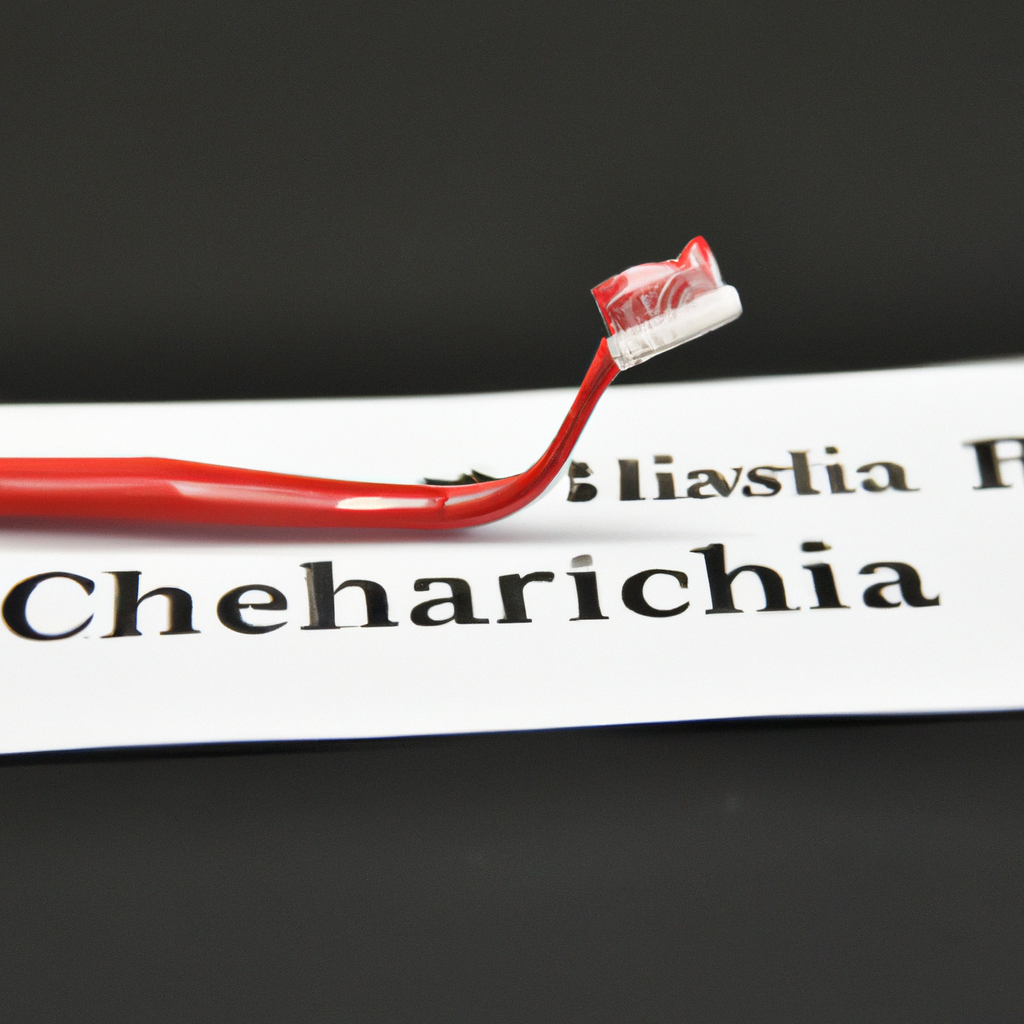
– Discussing preventive dental care strategies with the vet: The veterinarian can provide guidance on preventive measures to maintain the dental health of Fresno Chihuahuas. This may include recommendations for at-home dental care such as brushing the dog’s teeth regularly, providing dental chews or toys, and following a diet that promotes good oral health. Additionally, the vet can advise on signs to watch for that may indicate dental problems that require attention between regular check-ups.
Addressing Specific Dental Health Concerns in Fresno Chihuahuas
Handling Dental Emergencies
In Fresno Chihuahuas, dental emergencies can arise unexpectedly and require immediate attention to prevent further complications. It is crucial for pet owners to be vigilant and proactive in identifying and addressing dental issues promptly to ensure their Chihuahua’s optimal oral health. Some common dental emergencies that may occur in Fresno Chihuahuas include:
-
Broken or Fractured Teeth: Accidents or trauma can lead to broken or fractured teeth in Chihuahuas. If a tooth is chipped or broken, it is essential to seek veterinary care promptly to assess the extent of the damage and prevent infection or pain.
-
Severe Gum Infections: Gum infections, such as periodontal disease, can cause significant discomfort and may result in tooth loss if left untreated. Symptoms of gum infections in Chihuahuas may include swollen or bleeding gums, bad breath, and reluctance to eat. Immediate veterinary attention is necessary to address the infection and prevent it from spreading.
-
Objects Stuck in the Teeth or Gums: Chihuahuas are known for their curiosity and may accidentally get objects stuck in their teeth or gums while exploring their environment. Objects like bones, toys, or foreign debris can cause pain and lead to oral injuries. If a pet owner notices their Chihuahua struggling with something stuck in their mouth, it is crucial to seek veterinary assistance to safely remove the object and assess any resulting damage.
-
Sudden Changes in Eating Habits: Any sudden changes in a Chihuahua’s eating habits, such as difficulty chewing, reluctance to eat, or pawing at the mouth, could indicate an underlying dental issue or pain. It is essential for pet owners to monitor their Chihuahua’s eating behavior closely and consult with a veterinarian if any concerning changes are observed. Early intervention can help prevent dental emergencies and ensure the overall well-being of Fresno Chihuahuas.
Tailoring Dental Care for Chihuahua Puppies and Senior Dogs
When it comes to addressing specific dental health concerns in Fresno Chihuahuas, tailoring dental care for Chihuahua puppies and senior dogs is crucial for maintaining their overall health and well-being.
-
Introducing dental care early in a puppy’s routine:
It is essential to introduce dental care practices early in a Chihuahua puppy’s routine to establish good oral hygiene habits from a young age. Starting with gentle teeth brushing using a dog-friendly toothbrush and toothpaste can help prevent dental issues such as plaque and tartar buildup. -
Adapting dental care practices for aging Chihuahuas:
As Chihuahuas age, their dental needs may change, requiring adjustments to their dental care routine. Older Chihuahuas may be more prone to dental problems such as tooth decay and gum disease, necessitating regular dental check-ups and cleanings by a veterinarian. Additionally, providing senior dogs with dental chews or toys specifically designed to promote dental health can help maintain their oral hygiene. -
Special considerations for senior dogs with dental issues:
Senior Chihuahuas with existing dental issues require special attention to prevent further complications. In cases where dental problems are present, such as loose or missing teeth, inflamed gums, or bad breath, seeking prompt veterinary care is essential. Treatment options may include professional dental cleanings, tooth extractions, or specialized dental diets tailored to address specific oral health concerns in senior dogs.
FAQs: Fresno Chihuahuas Dental Health Assessments
What is involved in a dental health assessment for Fresno Chihuahuas?
During a dental health assessment for Fresno Chihuahuas, a veterinarian will examine the dog’s teeth, gums, and overall oral health. This may involve checking for signs of tooth decay, gum disease, or any other dental issues that could be causing discomfort or affecting the dog’s health. The veterinarian may also recommend a dental cleaning or other treatments if necessary.
How often should Fresno Chihuahuas have dental health assessments?
It is recommended that Fresno Chihuahuas have a dental health assessment at least once a year. However, some dogs may need more frequent assessments depending on their age, breed, and overall dental health. Regular dental check-ups can help prevent dental problems and ensure that any issues are caught early and treated promptly.
Are dental health assessments painful for Fresno Chihuahuas?
Dental health assessments for Fresno Chihuahuas should not be painful when conducted by a trained veterinarian. The veterinarian will use gentle techniques to examine the dog’s mouth and teeth without causing unnecessary discomfort. If the dog is experiencing any pain or discomfort during the assessment, the veterinarian can provide appropriate pain relief or sedation to make the process more comfortable for the dog.
How can I help maintain my Fresno Chihuahua’s dental health at home?
To help maintain your Fresno Chihuahua’s dental health at home, it is important to brush their teeth regularly with a dog-friendly toothpaste and toothbrush. You can also provide dental chews, toys, or treats that are specifically designed to promote good oral health. Additionally, feeding a balanced diet and avoiding sugary snacks can help prevent dental issues in your Chihuahua. Regular dental health assessments and cleanings by a veterinarian are also essential for keeping your dog’s teeth and gums healthy.

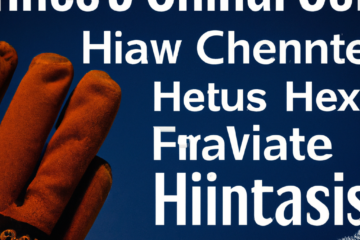
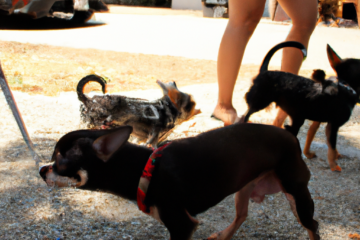
0 Comments